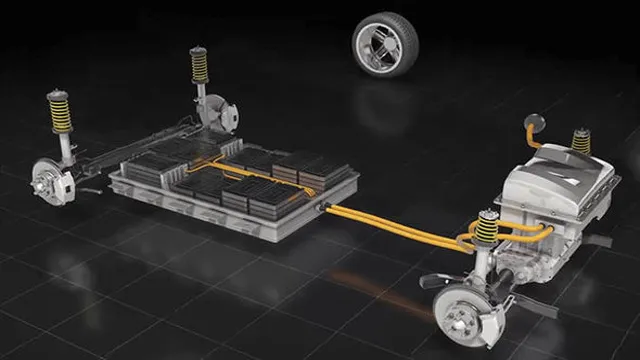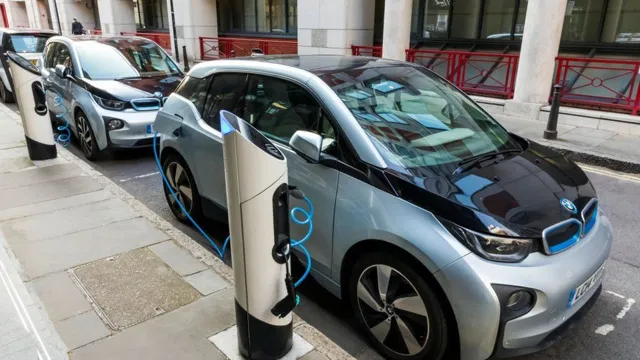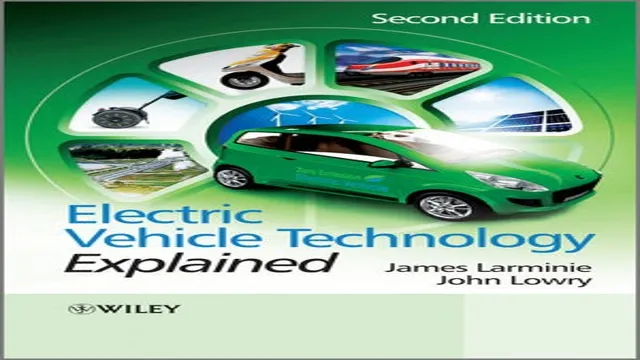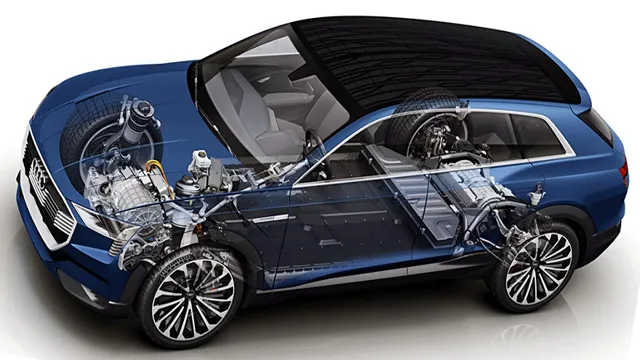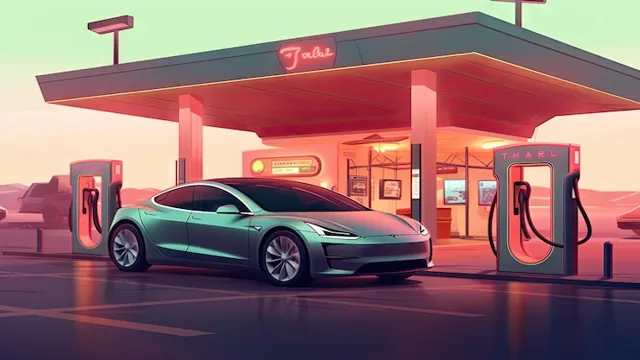Revolutionizing Electric Cars: Exploring the Latest Battery Technology
Electric cars have been around for quite some time now and have been gaining popularity rapidly. However, one issue that has always plagued them is the battery life and the need for frequent charging. With the advent of new battery technologies, electric cars are now more reliable than ever.
The latest advancements in battery technology have led to the creation of batteries that are more efficient, long-lasting, and affordable. The new battery technology is revolutionizing the auto industry, making electric cars more comfortable and accessible. The latest battery technology uses materials that allow for faster charging and longer battery life, making electric cars more practical for long-distance travel.
Additionally, the new battery technology does not rely on rare metals, making them more sustainable and eco-friendly. Thanks to the new battery technology, the price of electric cars is also significantly decreasing. While electric cars used to be a luxury only a few could afford, they are now becoming more accessible to everyone.
This, in turn, will lead to an increase in demand, which means more research and development towards improving battery life and efficiency. Overall, the new battery technology is a game-changer for the auto industry. It is making electric cars more practical, reliable and cost-effective, paving the way for a greener future.
With more advancements on the horizon, we can expect to see even more innovative battery technology that will make electric cars the norm rather than the exception.
Current State of Electric Car Batteries
The newest battery technology for electric cars has come a long way in recent years, improving significantly in both range and cost. Lithium-ion batteries are still the most popular option for electric car manufacturers, but the newest versions offer greater energy density, which enables longer driving ranges. Additionally, advancements in battery chemistry and manufacturing have led to lower costs, making electric cars more accessible to the average consumer.
One of the most exciting developments in electric car batteries is solid-state technology, which offers even higher energy density and could potentially eliminate some of the safety concerns associated with lithium-ion batteries. While solid-state batteries are not yet commercially available, experts predict that they will be in the near future and could revolutionize the electric car industry. With all of these advancements in battery technology, it is clear that electric cars are becoming a more viable option for drivers.
Battery Density and Range
Battery density and range are two of the most crucial factors when it comes to electric cars. Currently, the range of an electric car depends on the capacity of its battery. The higher the battery capacity, the more range an electric car can cover.
However, there is a trade-off between battery capacity and weight. As of now, the most common type of battery used in electric cars is the lithium-ion battery. These batteries have a low energy density, and for an electric car to have an adequate range, it needs to have a large battery pack.
This can lead to increased weight and decreased efficiency. However, with the advancement of technology, researchers are developing new types of batteries, such as solid-state batteries, which have a higher energy density and are much lighter. These batteries are currently in the developmental stage, but once they are commercialized, we can expect electric cars to have much longer ranges without sacrificing weight or efficiency.
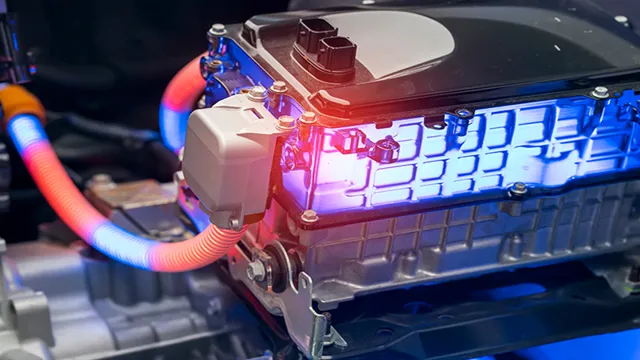
Charging Time and Infrastructure
The current state of electric car batteries is one of the most important factors affecting charging time and infrastructure. Most electric cars on the market today use lithium-ion batteries, which have significantly improved their energy density over the last decade. This improvement means that they can store more energy in the same physical space, resulting in an increase in driving range.
However, the charging speed of these batteries has not improved as quickly. It still takes several hours to charge most electric cars, making it difficult to use them for long trips without access to fast-charging infrastructure. Furthermore, the availability of fast-charging infrastructure is still limited in many areas, making it challenging for electric car owners to plan long trips confidently.
However, the good news is that this is changing rapidly. Battery technology is advancing, and more fast-charging infrastructure is being deployed. As a result, we can expect electric car charging times and infrastructure to accelerate in the coming years.
New Research and Developments
Electric cars have come a long way in terms of fuel efficiency and environmental friendliness. With newer and more energy-efficient vehicles entering the market every year, battery technology for electric cars has become an area of intense research and development. The newest battery technology for electric cars promises to offer longer driving ranges and faster charging capabilities.
This newer technology uses materials such as silicon instead of graphite to improve energy density, making electric cars even more efficient and cost-effective. The energy density of these batteries is a critical factor that affects the range and efficiency of electric vehicles. Engineers are also exploring solid-state batteries that use thin films of solid electrolytes instead of the liquid electrolytes used in traditional lithium-ion batteries.
These solid-state batteries are safer, have higher energy density, and can withstand higher temperatures. With these advancements in battery technology, electric cars have the potential to revolutionize the automotive industry and transform how we think about transportation.
Solid-State Batteries
Solid-State Batteries Solid-state batteries hold great promise for the future of energy storage and transportation. Recent research and developments in this field have produced some exciting advancements in solid-state battery technology that could revolutionize the industry. One of the most significant developments is the use of a solid electrolyte, which replaces the traditional liquid electrolyte used in conventional batteries.
This eliminates the risk of leakage and improves the safety and durability of the battery. Solid-state batteries also have a higher energy density, which means they can store more energy in a smaller space. This makes them ideal for use in electric vehicles, where space is at a premium.
However, there are still some challenges to overcome in the development of solid-state batteries, including the difficulty of scaling up production and reducing costs. As research in this field continues, we can expect to see more breakthroughs that will lead to the commercialization of solid-state batteries.
Lithium-Sulfur Batteries
Lithium-sulfur batteries are an exciting development in the world of energy storage. Research and development in this field have shown great potential for these batteries to surpass the performance of traditional lithium-ion batteries. One of the key advantages of lithium-sulfur batteries is their high energy density, which means they can store more energy in a smaller space.
However, these batteries also face challenges such as low cycle life and a mismatch between the sulfur and lithium cathodes. Nevertheless, researchers are making significant strides in addressing these issues, with promising developments such as modified cathodes and electrolytes that can enhance the life and performance of these batteries. It’s an exciting time for lithium-sulfur batteries, and we can expect to see significant progress in this field in the coming years.
Carbon-Based Batteries
Carbon-based batteries are becoming increasingly popular around the world due to their high energy density, low cost, and renewability. Recent research and developments in this field have shown promising results, with scientists continuously making efforts to improve the performance and efficiency of these batteries. One area of focus has been the use of sustainable materials in the production process, such as biomass-derived carbons and waste-derived carbons.
These materials exhibit excellent electrochemical properties and can significantly reduce the environmental impact of battery production. Additionally, many researchers are looking for ways to enhance the electrical conductivity and stability of carbon-based batteries, further improving their performance. As these efforts continue, we can expect to see even greater advancements in the development of carbon-based batteries as a sustainable and reliable energy storage solution for the future.
Future of Electric Car Batteries
The newest battery technology for electric cars is constantly evolving, and the future is looking bright. With advancements in electrode materials such as silicon, solid-state electrolytes, and lithium-sulfur batteries, electric vehicles are poised to become even more efficient and powerful. These improvements mean that electric car batteries will hold more charge, last longer, and charge faster than ever before.
Imagine being able to drive 500 miles on a single charge or being able to charge your electric car in just a few minutes. With the latest breakthroughs in battery technology, this is becoming a reality. These advancements will also help to make electric cars more affordable and widespread, as they become more accessible and practical for daily use.
With the environmental benefits of electric cars, it’s exciting to see the future of this technology. The newest battery technology for electric cars is not only good for our planet but also for our daily lives.
Improvement in Energy Density
The future of electric car batteries looks extremely promising due to the vast improvements in energy density. Battery technology has come a long way in recent years, and it’s continuing to advance at an impressive pace. Today’s electric vehicles are able to travel longer distances without requiring a recharge due to increased cell density and material innovations.
In addition, battery costs have come down significantly, making them an affordable choice for everyone. The potential for electric cars is huge, and as the technology improves, the possibilities for their use become more expansive. With more and more car manufacturers making electric vehicles, it’s clear that the industry is headed in a greener direction that will benefit us all in the long run.
Better Charging Times and Infrastructure
The future of electric car batteries is looking brighter than ever. One of the biggest challenges facing electric cars has been the time it takes to charge these batteries, but that’s set to change in the near future. With advancements in technology, faster charging times are on the horizon, making electric cars even more practical for everyday use.
Another area of improvement is the infrastructure needed to support these vehicles. As more and more people start using electric cars, the demand for charging stations will continue to grow. To meet this need, governments and private companies are working on expanding the number of charging stations available, making it easier than ever to keep your electric car charged up and ready to go.
Overall, the future of electric car batteries looks promising, bringing us closer to a world where driving is both eco-friendly and convenient.
Conclusion – What to Look Out for in Upcoming Electric Cars
In conclusion, the latest battery technology for electric cars is a game-changer in more ways than one. With improved energy density, faster charging times, and longer lifespans, these batteries are paving the way for a more sustainable future by making electric cars a more viable and practical option for everyday use. So buckle up, because as this technology continues to evolve, there’s no telling where the road will take us.
One thing’s for sure though, it’s going to be electric!”
FAQs
What is the newest battery technology used in electric cars?
The newest battery technology used in electric cars is known as solid-state batteries. They offer higher energy density, longer life, and faster charging compared to conventional lithium-ion batteries.
How do solid-state batteries differ from traditional lithium-ion batteries?
Solid-state batteries use a solid electrolyte instead of a liquid electrolyte, which makes them safer, more efficient, and less prone to catching fire or exploding. They also have a higher tolerance for extreme temperatures and offer almost double the energy density of conventional lithium-ion batteries.
Are solid-state batteries commercially available for electric cars?
Solid-state batteries are still in the development phase, with a few companies such as QuantumScape, Toyota, and BMW actively working on them. However, they are not yet commercially available for electric cars. It may take a few more years before they become widely available.
What are the benefits of using solid-state batteries in electric cars?
Solid-state batteries offer several benefits for electric cars, such as faster charging times, longer driving ranges, increased safety, and improved durability. They also have a lower environmental impact as they use fewer raw materials, offer higher energy efficiency, and can be recycled more easily.

